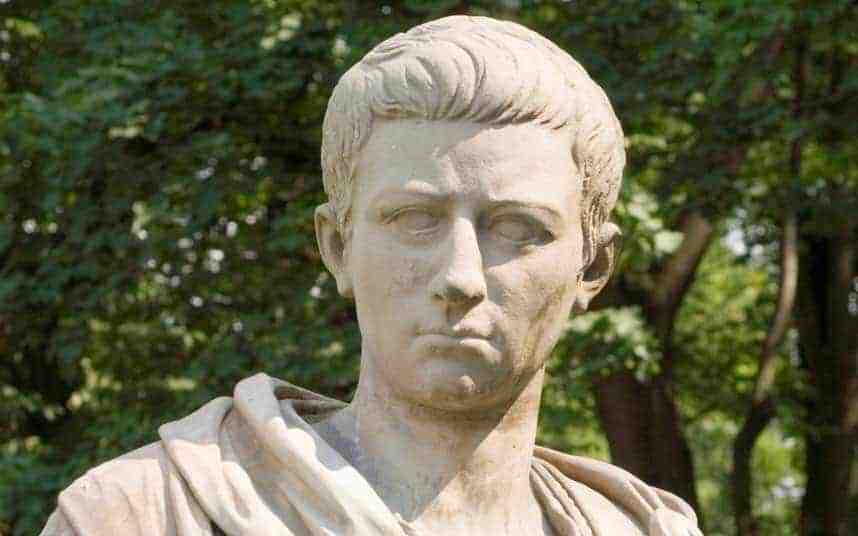Cheered by a crown of Roman plebeians and maybe a few of the aristocracy, the Roman emperor Caligula accepted the titles of the Principate, entitled to him by the Senate, on this day in 37 AD. Caligula’s reign was a controversial one that is sometimes tethered more to fiction than fact.
On the one hand, he is often noted for being the first widely loved emperor. On the other hand, he is remembered for being one of the cruelest. His perceived benevolence may have been a perception that radiated from a superfluous virtue: his predecessor, Tiberius, was vehemently disliked. Thus, not being Tiberius made Caligula (and anyone else) likable.

At the onset of his role as emperor, Caligula was known for having been a fair and noble leader, or at least he was for the first half year he ruled. Thereafter, he is principally recognized for possessing typical tyrannical traits, a fiery temper, paranoid disposition, a propensity for building structures throughout Rome, and the administration of excessive punishments. His megalomaniac disposition was not without spice: he is rumored to have had a perverse sexual appetite.
Assuming it is true that Caligula shifted character during his rule, the change in personality has been attributed to many theories, including that he was always cruel and could appear pleasant when it was necessary. An alternative, plausible view is that his personality changed as a side effect of a poisoning in October of 37. The incident was said to have left him paranoid, suddenly casting anyone he perceived as a threat into exile.
What is certain about his reign is that he did endeavor to alter the powers granted to him through the principate, which was limited. He worked eagerly to expand them until his powers were infinite. During his rule, the empire sunk into a financial mire; a crisis was caused by Caligula’s generosity and extravagant lifestyle, which left the treasury empty; to make up for the losses. Caligula used his power to force fines on wealthy citizens to justify seizing their estates. Citizens’ taxes increased and the lives of gladiators were auctioned off during shows.
His reign came to an end in 41 when he was assassinated shortly after announcing his intention to rule from Egypt, where he could be worshiped as a god.

